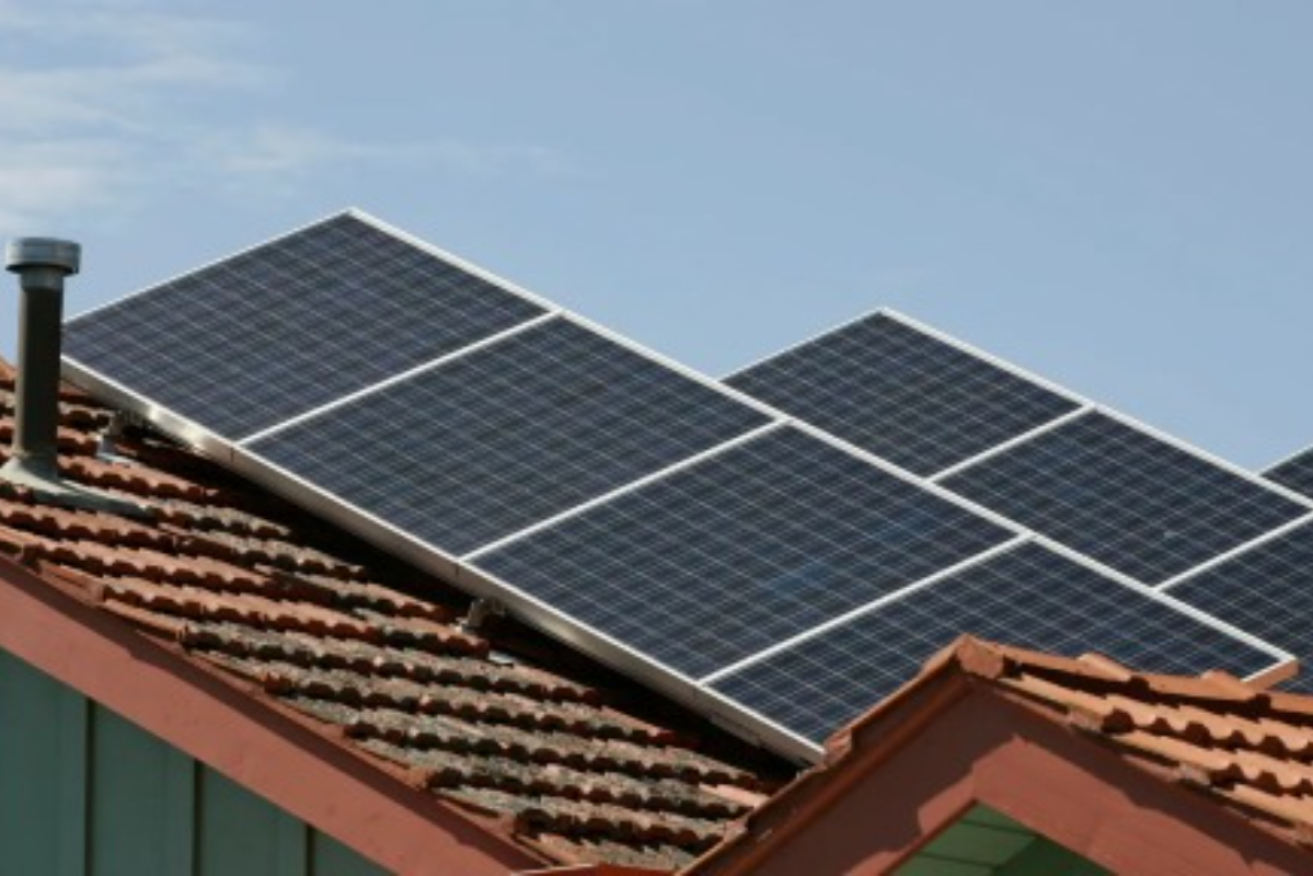Battery boom: More Australians get storage after power prices rise
An increasing number of Australians are investing in household batteries, according to data that points towards a boom across the industry as the technology becomes cheaper.

Australia leads the world in household solar takeup, but very few have battery storage. Photo: AAP
Figures published on Tuesday by Sunwiz revealed a record 57,000 batteries were installed nationwide in 2023, up a staggering 21 per cent on last year, with homes playing a key role.
The cumulative number of home battery systems is more than 250,000 nationwide, equating to about 2770 megawatt hours of capacity. It’s a figure that’s only set to grow in coming years as households look to cash in on the increasing economic value of local storage technology.
Indeed, Sunwiz said the economic value of batteries was rising amid a widening gap between electricity prices and what homeowners could get back selling their solar to the grid.
Sunwiz managing director Warwick Johnston – who wrote the report – told TND the payback period for a typical battery system had fallen to seven to eight years as upfront costs also plunge.
That’s lower than the 9.7 years estimated in a recent government-backed report, which predicted the time for a battery to pay for itself in savings would not hit seven years until 2025.
“Batteries have come down in price, that’s one factor,” Johnston said of the financial calculus pushing more households to take the plunge.
“The second factor is electricity prices have gone up significantly and the amount they give you for excess solar keeps going down.”
Need for subsidies
Australia leads the world in adoption of rooftop solar panels and has generated huge amounts of electricity this way in recent years.
But battery adoption has been much lower, with only a few per cent of households opting to pay extra for storage at their properties.
As of 2022 only 1.6 per cent of households had rooftop PV with a battery installed, according to Australian Energy Market Commission estimates.
A big barrier has been the upfront cost of having one installed, with the most popular Tesla Powerwall costing almost $13,000 including installation with a capacity of about 13 kw/H.
Johnston said this was still an issue preventing wider adoption, backing the introduction of further subsidies to make it easier for families to take the plunge.
He said subsidies could be paired with requirements for households to participate in a coordinated program of energy management across the grid that would optimise where renewable energy travelled and was used.
Advocacy group Solar Citizens is also backing additional subsidies to lift adoption. National director Heidi Lee Douglas said households that could get across the line would reap the rewards of lower energy bills.
“We need greater targeted financial support for more homes to access the bill-saving power of local battery storage,” Lee Douglas said.
“The Sunwiz data shows Aussie households are keen to install household batteries to complement their rooftop solar, but the high upfront cost remains an impediment to most people and families.
Economics improving
The economics of battery systems will also continue to improve as more families adopt electric systems for hot water and heating, as well as road travel with electric and hybrid vehicles.
In other words, the higher the electricity demand in your household the more value you will get from having a battery, though the exact amounts will differ from location to location.
Johnston recommends the Clean Energy Council’s comprehensive guide to buying a battery for anyone thinking about taking the plunge and wondering about the financial calculus.
He said accredited solar retailers were also a good point of call for households wondering whether a battery was worth it.
This story first appeared in our sister publication The New Daily




